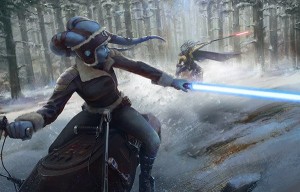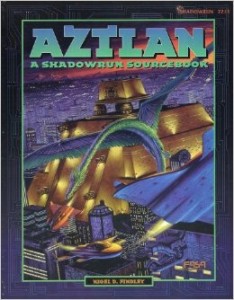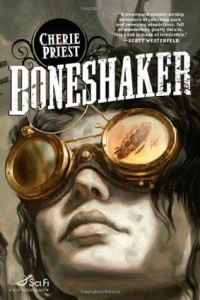Today’s #RPGaDAY2015 topic is Favorite RPG Publisher. That’s simple. My favorite RPG publisher is the one that pays their freelancers a good rate and in a timely manner. When that’s done, it’s a signal that a company not only values their employees, they value their entire work.
It’s disappointing this is my answer.
It’s disappointing that there are enough publishers that delay payments, act in bad faith, or are actual charlatans that we can actually define a subset of game publishers as “the ones that actually pay their contractors”. But you know what? It’s true.
Just to single one of the companies out that I’ve worked for, Magpie Games is great. I’ve been working on products for them for over a year and a half now and they’ve consistently fantastic about prompt payment, at times bugging me for an invoice so they could get me paid! This is a three-person operation working on products that have small print runs, compared to an industry that has smallish print runs. Yet they can get their freelancers paid, quickly. They’re one of my favorite publishers. ((It doesn’t hurt that put out good stuff, either! The Fate Core and Apocalypse World systems are among my favorite game systems. Magpie Games has been doing some neat stuff with those two bases recently.))
I’ve experienced and heard of good things from other companies, too many list (and I’m afraid that I’d accidentally leave someone off, implying that they aren’t a good player in our industry).

But if we’re not talking about how a company treats their employees and freelancers, what other metric can we use?
How about how the company’s public faces behave in public?
Let me tell you why I love Evil Hat Productions.
Several years ago, they published this game, Spirit of the Century, and this one guy does a review of the game. Dude was extremely negative in his review (if I recall correctly, purposefully so). Dude generally hates games that deviate from the 1970’s style of D&D roleplay and gamers that like games he doesn’t. ((I’m painting with a broad stroke here.)) It’s a reason to crap on a game while disguised as a review.
Evil Hat directly responds: “Thanks for taking the time to review our book. Sorry you didn’t enjoy it.”
So Evil Hat, one of my favorite publishers.
 Maybe it’s not that. Maybe it’s which publisher publishes your favorite stuff? Or which one made your favorite game? Or which one has a constant output of new stuff, continually making your game better and better?
Maybe it’s not that. Maybe it’s which publisher publishes your favorite stuff? Or which one made your favorite game? Or which one has a constant output of new stuff, continually making your game better and better?
Too many choices. Too many ways to answer the question. Fantasy Flight Games has amazing art direction (and game mechanics) in their Star Wars games and has a steady stream of supplemental materials. Dog-Eared Design has the one game and when they went for a Kickstarter campaign for the new edition, they didn’t add on a bunch of goofy stretch goals. ((Which I found rather refreshing.)) Too many things competing for “favorite”.
What criteria would you use to determine a “favorite” publisher?
 Now, I love me some Shadowrun and I’ve always liked their books because they incorporated game fiction in a way that wasn’t just two to six pages of short stories. Most sourcebooks featured in-game information that was player-friendly, presented as files uploaded to a website, followed by a game rules section that showed how to use all that stuff in your game. The first section was full of ShadowTalk, comments on the actual datafiles you were reading, by other characters in the game world. There would be arguments, tangential discussions, and corrections of “facts†in the “real†datafile. There were recurring characters showing up in the sourcebooks, all with their own unique voices, style, and perspective on the articles mentioned. It actually made the game world feel larger.
Now, I love me some Shadowrun and I’ve always liked their books because they incorporated game fiction in a way that wasn’t just two to six pages of short stories. Most sourcebooks featured in-game information that was player-friendly, presented as files uploaded to a website, followed by a game rules section that showed how to use all that stuff in your game. The first section was full of ShadowTalk, comments on the actual datafiles you were reading, by other characters in the game world. There would be arguments, tangential discussions, and corrections of “facts†in the “real†datafile. There were recurring characters showing up in the sourcebooks, all with their own unique voices, style, and perspective on the articles mentioned. It actually made the game world feel larger.
 I initially resisted getting into the author’s works, primarily because the geekerati ((You know, the geek media celebrities with their insulting “Hey nerds!” calls to action.)) were heavily pushing the first book, Boneshaker, and it seemed like you had to read it. It’s the hip new thing our nerdy alt-culture embraced! I wound up holding off a year before reading it and man, was I wrong. It was good. Strangely good.
I initially resisted getting into the author’s works, primarily because the geekerati ((You know, the geek media celebrities with their insulting “Hey nerds!” calls to action.)) were heavily pushing the first book, Boneshaker, and it seemed like you had to read it. It’s the hip new thing our nerdy alt-culture embraced! I wound up holding off a year before reading it and man, was I wrong. It was good. Strangely good. The American Civil War had been going on for much longer than in our real history: alt-history, specifically around that war, is something that always fascinated me. I loved looking at what spin Priest put on the political situation. Texas, her own independent power, checking the South and North, occupying New Orleans and controlling the Mississippi River. Mercy working in the Confederate hospital, travelling west across a wartorn countryside. The Pinkertons and their role in the Union. Everything outside the walled city of Seattle would make for a great game. ((As an aside, I always liked the craziness of Deadlands, also set in the same alt-history period, but never enjoyed the actual game.))
The American Civil War had been going on for much longer than in our real history: alt-history, specifically around that war, is something that always fascinated me. I loved looking at what spin Priest put on the political situation. Texas, her own independent power, checking the South and North, occupying New Orleans and controlling the Mississippi River. Mercy working in the Confederate hospital, travelling west across a wartorn countryside. The Pinkertons and their role in the Union. Everything outside the walled city of Seattle would make for a great game. ((As an aside, I always liked the craziness of Deadlands, also set in the same alt-history period, but never enjoyed the actual game.))